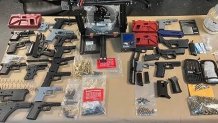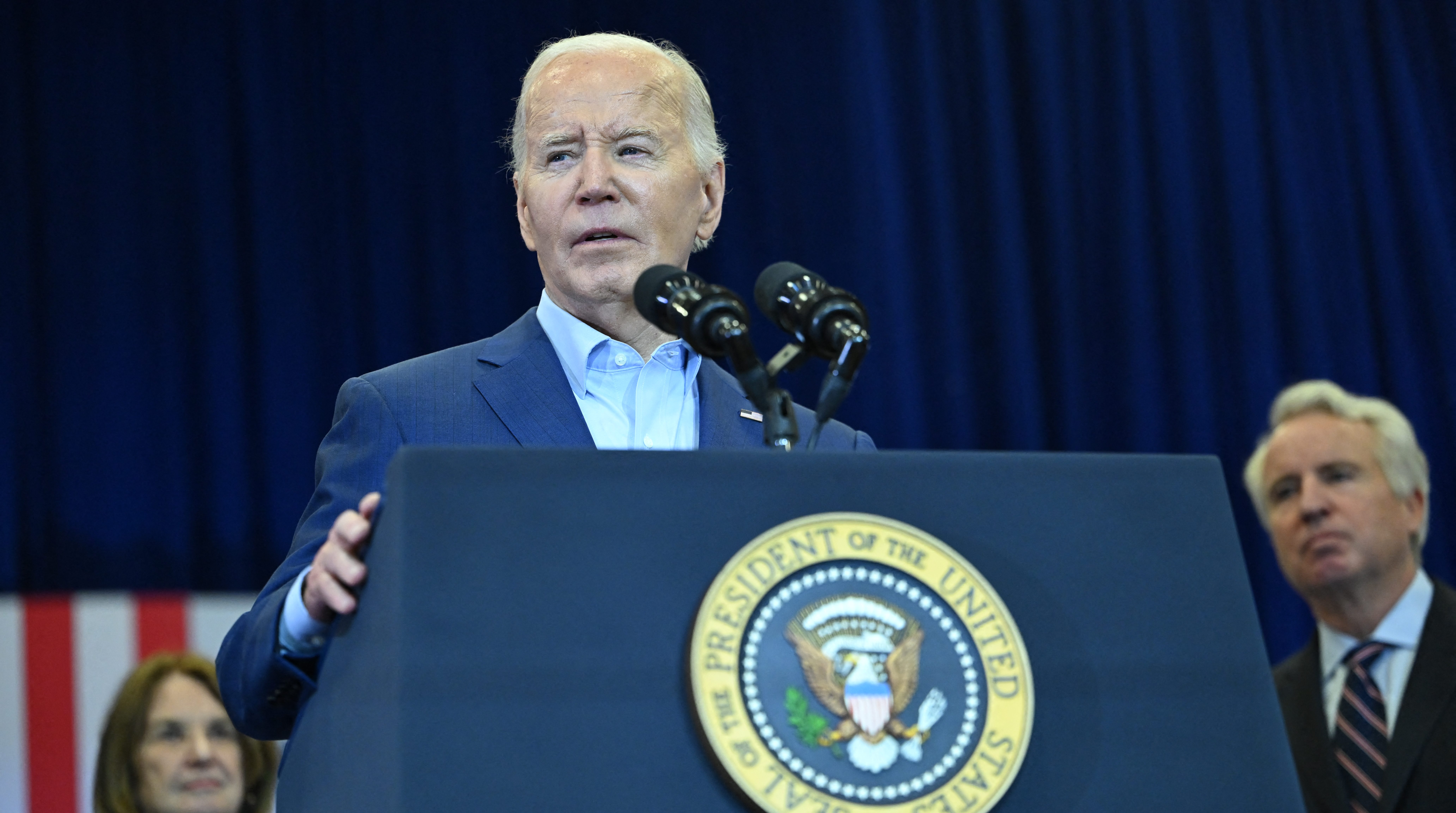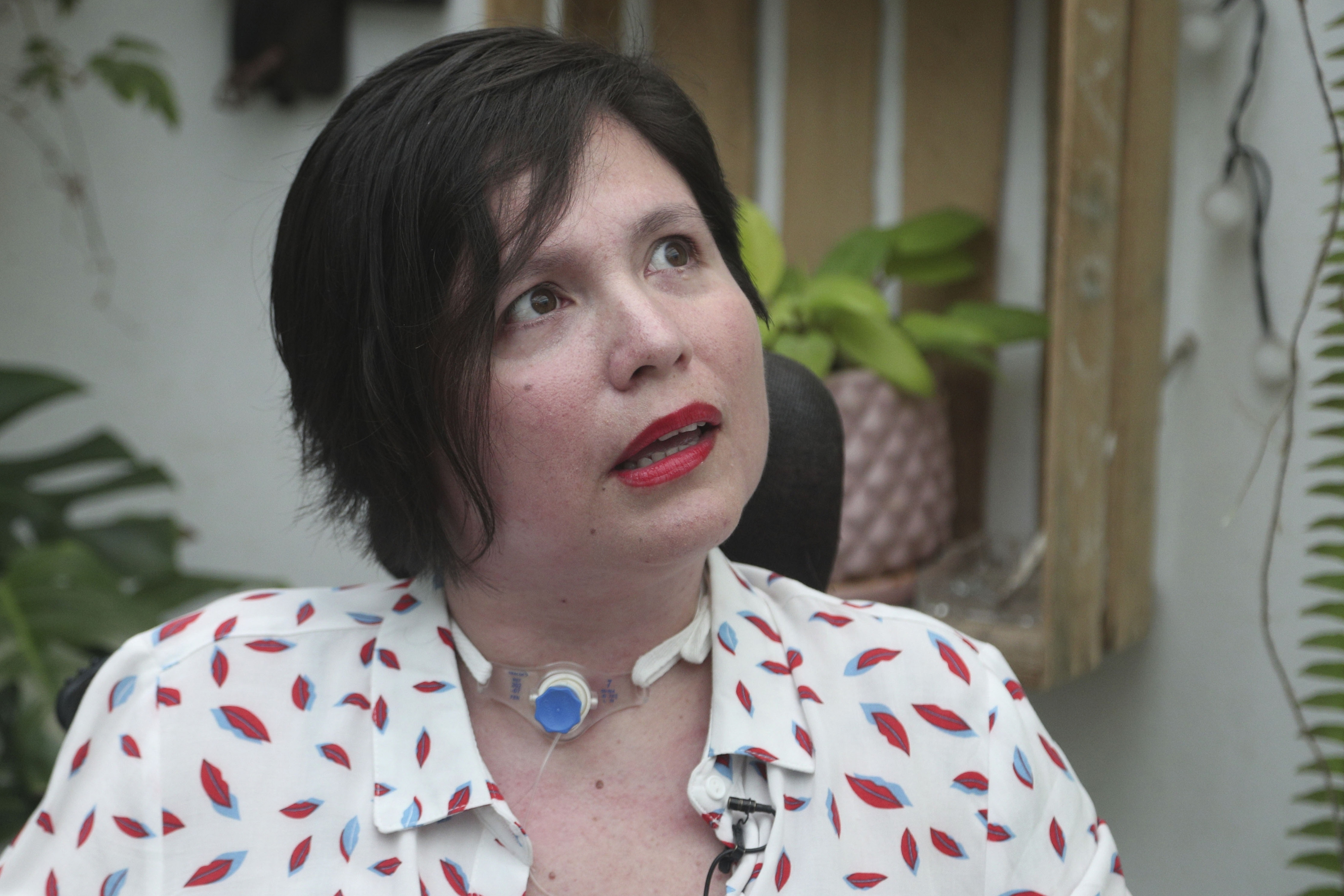Despite boasting some of the country’s strictest gun laws, the number of ghost guns in Massachusetts is growing.
Ghost guns are manufactured firearms. Their individual parts are sold in kits to be assembled at home. Once assembled they function like any traditional firearm.
What sets ghost guns apart and makes them more dangerous in the eyes of law enforcement is that, until recently, the parts are sold without serial numbers, making them untraceable to law enforcement. Furthermore, the kits can be purchased without obtaining a permit, allowing people who are otherwise prohibited from owning a gun to get one.
"You don't need a permit to have a piece of a gun. The reality is it only becomes a firearm once it gets assembled and once it is able to be fired. But at that point, it's too late," said State Rep. David Linsky, a democrat from Natick. "It's a huge problem."
Get New England news, weather forecasts and entertainment stories to your inbox. Sign up for NECN newsletters.
For much of the last decade the popularity and prevalence of ghost guns have risen across the United States. Law enforcement agencies, especially in large metropolitan cities, have reported a steady rise in their use to commit crimes.
According to the gun-control advocacy group Brady, from 2016-2021 law enforcement agencies reported more than 45,000 ghost gun recoveries to the Bureau of Alcohol, Tobacco, Firearms, and Explosives (ATF).
"The number of guns that are these kinds of guns that are being recovered when police stop someone or searching for something else is really increased very dramatically," said Middlesex County District Attorney Marian Ryan.
U.S. & World
Ryan said her first encounter with a ghost gun was seven years ago, when a 13-year-old used a 3-D printer to make one at home. She said the challenge for law enforcement and prosecutors is tracing their origin since they don’t come with serial numbers.
"You use it in a crime, we have no possibility of tracing it," she said. "You can leave the gun at the scene. We just really can't go anywhere with it because it doesn't have a serial number."
Although Massachusetts heavily regulates firearms, Linsky said the proliferation of ghost guns across the commonwealth is due to loopholes in the law.
"If you're just buying parts and it's not an assembled firearm, that purchase of parts falls through the cracks," Linsky said. "Without having to go through any type of licensing process, any type of background check process whatsoever, [people prohibited from possessing a firearm] are able to, under current law, legally get the pieces to make a firearm and put it together."
According to data obtained through an open records request, the Boston Police Department has seen a nearly 80% increase in the number of ghost guns it's recovered over the last three years. In 2019 officers seized 15 ghost guns. 23 were recovered in 2020, and another 58 in 2021.
According to data obtained through an open records request, the Boston Police Department has seen a nearly 80% increase in the number of ghost guns it's recovered over the last three years. In 2019 officers seized 15 ghost guns. 23 were recovered in 2020, and another 58 in 2021.

As of September, police have recovered 79 ghost guns. The bulk of those firearms were seized in May during the bust of a suspected gun mill in Dorchester.
Gun-control advocacy groups say Boston’s numbers are no surprise. According to the Giffords Law Center to Prevent Gun Violence, ghost guns are most prevalent in large cities in states with strong gun laws.
"Think Los Angeles, think New York, think Boston. These are areas where it's difficult for traffickers to get a gun through more traditional means because there are strong gun laws in place. So, they turn to these ghost gun products and avoid all those legal implications," said David Pucino, deputy chief counsel for the Giffords Law Center.
Gun-control groups have been pushing the ATF to tighten regulations on manufacturers and sellers. They got a major victory in August when the Biden administration implemented new rules requiring ghost gun kits to include serial numbers, and mandated background checks for buyers. Pucino said the changes don’t go far enough, which is why he’s urging states to act.
"There are some things that this federal regulation is not going to do. The major one is that it doesn't address the existing stock of ghost guns out there. It regulates the parts used to make ghost guns, but for those existing guns that are being completed that are in private hands, they're not affected at all,” Pucino said. “We need our state laws that say if you have a gun without a serial number, go out and get one."
Manufacturers and gun-rights groups have challenged the new regulations in court. They argue the new rules violate the Second Amendment and complying with the same laws regulating traditional gun makers will put them out of business.
"I think that's an open admission that their business practice, their entire industry, is built on the idea of getting around these regulations," Pucino said.
The federal government has prevailed in several cases, but in early September a federal judge sided with a Florida manufacturer’s arguments that the ATF "unlawfully treats weapon parts kits as firearms."
Linsky is pushing his own bill in the statehouse. It would require parts to be stamped with serial numbers before they leave the factory, a licensing requirement for sellers and a background check for purchasers. To him every day without tighter regulations is a missed opportunity to potentially save a life
"Whether it's manufactured in a gun factory or whether it is manufactured in somebody's home, putting together the same parts, they're the same. They're the same gun," he said.
"It does the same damage. It kills the same people."



